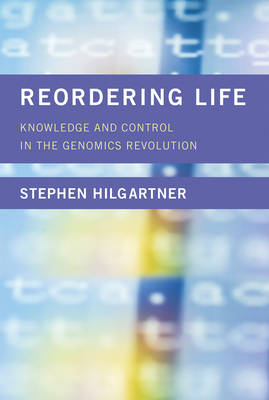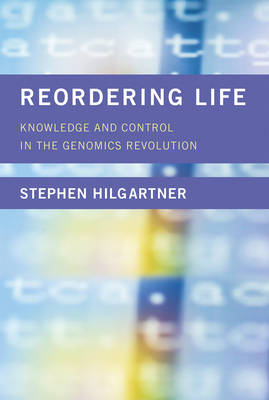
- Retrait gratuit dans votre magasin Club
- 7.000.000 titres dans notre catalogue
- Payer en toute sécurité
- Toujours un magasin près de chez vous
- Retrait gratuit dans votre magasin Club
- 7.000.0000 titres dans notre catalogue
- Payer en toute sécurité
- Toujours un magasin près de chez vous
Description
The rise of genomics engendered intense struggle over the control of knowledge. In Reordering Life, Stephen Hilgartner examines the "genomics revolution" and develops a novel approach to studying the dynamics of change in knowledge and control. Hilgartner focuses on the Human Genome Project (HGP)--the symbolic and scientific centerpiece of the emerging field--showing how problems of governance arose in concert with new knowledge and technology. Using a theoretical framework that analyzes "knowledge control regimes," Hilgartner investigates change in how control was secured, contested, allocated, resisted, justified, and reshaped as biological knowledge was transformed. Beyond illuminating genomics, Reordering Life sheds new light on broader issues about secrecy and openness in science, data access and ownership, and the politics of research communities.
Drawing on real-time interviews and observations made during the HGP, Reordering Life describes the sociotechnical challenges and contentious issues that the genomics community faced throughout the project. Hilgartner analyzes how laboratories control access to data, biomaterials, plans, preliminary results, and rumors; compares conflicting visions of how to impose coordinating mechanisms; examines the repeated destabilization and restabilization of the regimes governing genome databases; and examines the fierce competition between the publicly funded HGP and the private company Celera Genomics. The result is at once a path-breaking study of a self-consciously revolutionary science, and a provocative analysis of how knowledge and control are reconfigured during transformative scientific change.
Spécifications
Parties prenantes
- Auteur(s) :
- Editeur:
Contenu
- Nombre de pages :
- 368
- Langue:
- Anglais
- Collection :
Caractéristiques
- EAN:
- 9780262035866
- Date de parution :
- 19-05-17
- Format:
- Livre relié
- Format numérique:
- Genaaid
- Dimensions :
- 160 mm x 234 mm
- Poids :
- 408 g

Les avis
Nous publions uniquement les avis qui respectent les conditions requises. Consultez nos conditions pour les avis.






